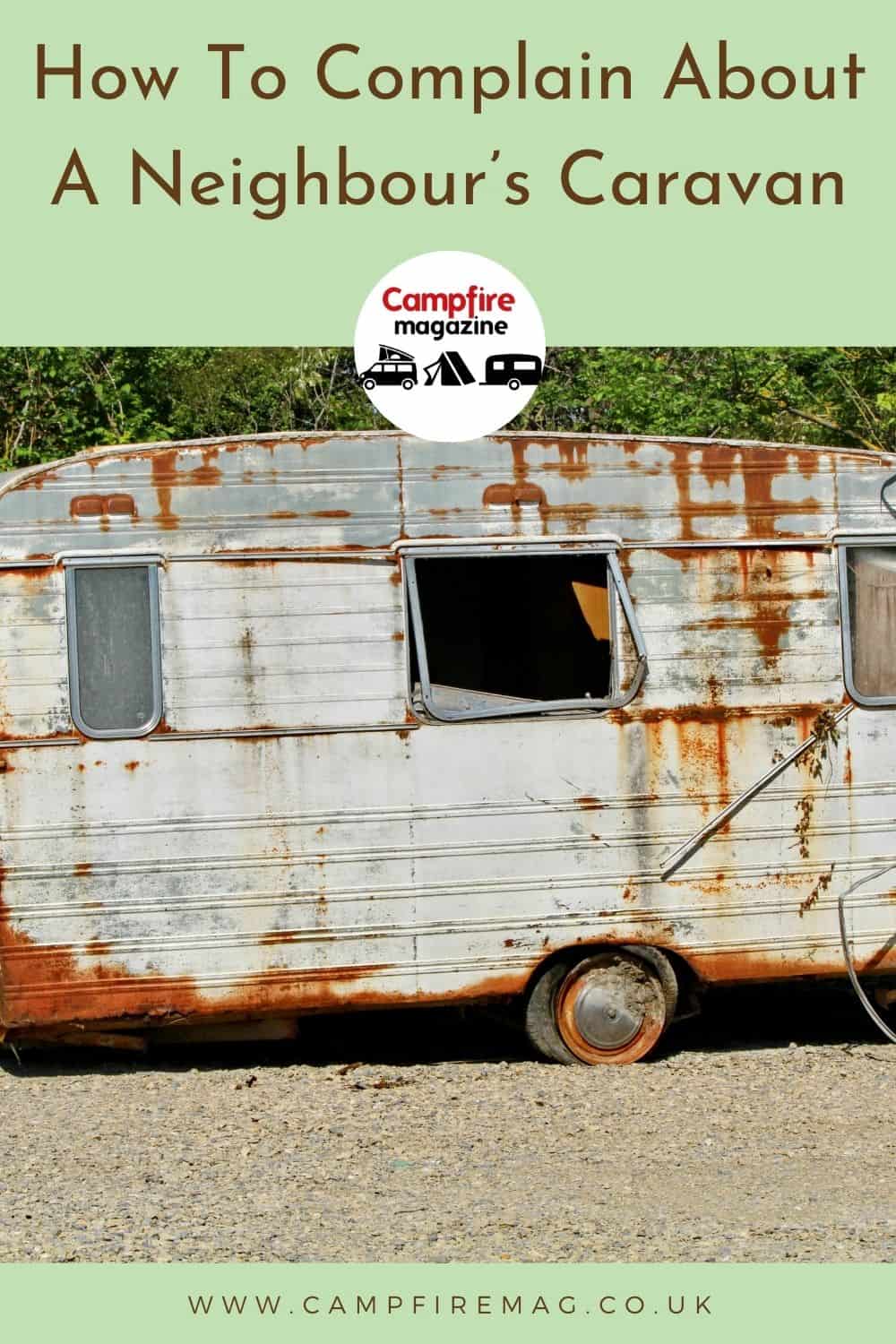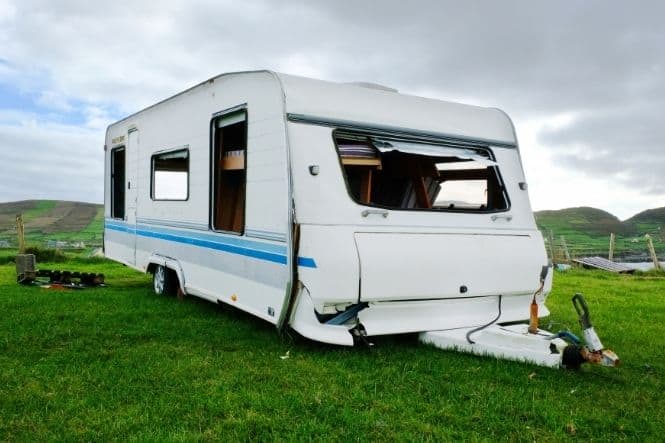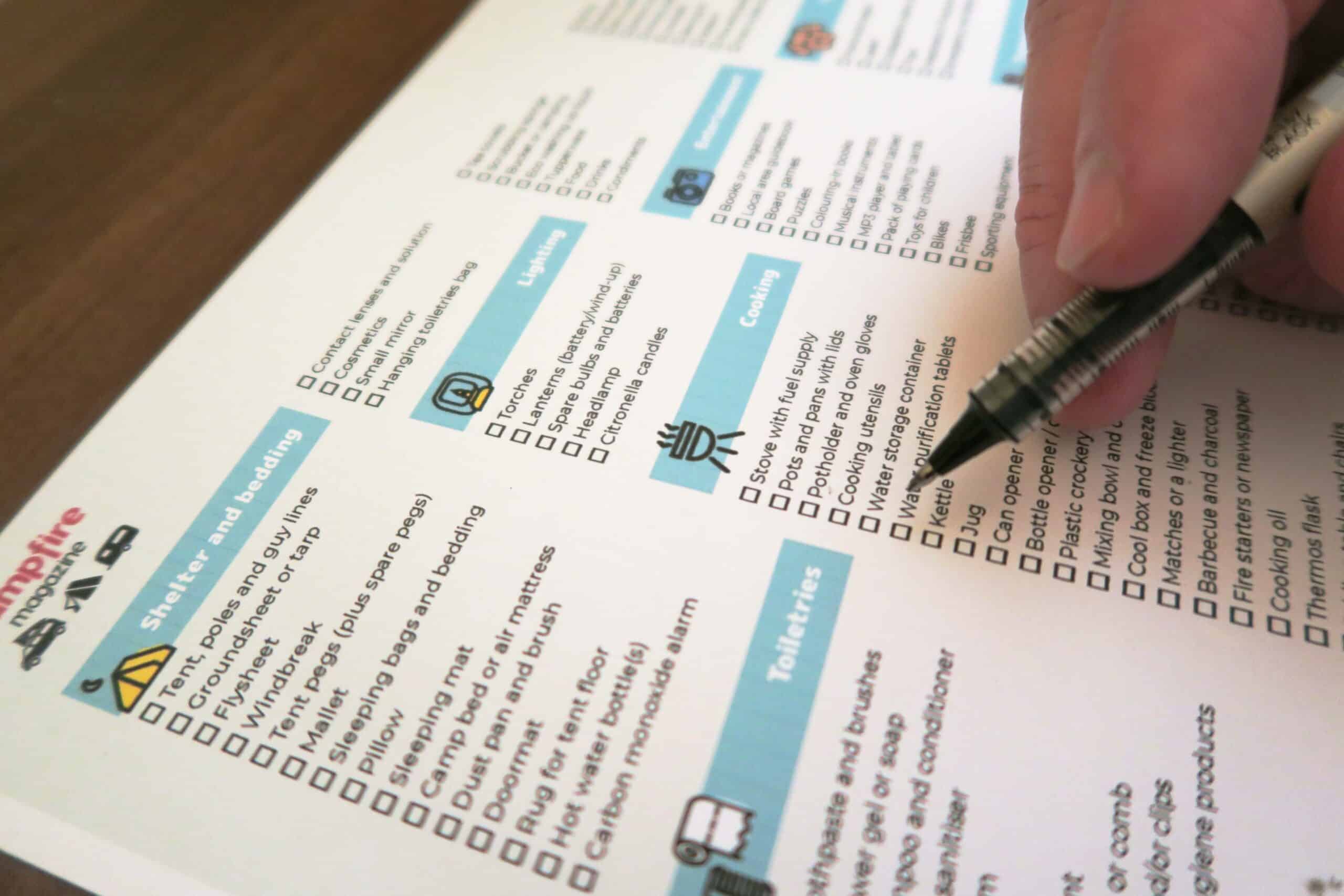Caravans are popular recreational vehicles but let’s face it, they’re not always welcome in residential areas. Of course, the laws around this may differ greatly from the opinions of local residents so it’s worth thinking about how to achieve a balance that will please everyone.
However, if you have a neighbour whose caravan poses nothing more than a nuisance then you’ll likely want something to be done about it. It can be a touchy subject and may lead to neighbour disputes if things are handled correctly.
In this guide, we’ll be giving you some tips on how to complain about a neighbour’s caravan as well as what you can expect from the law.

What Is The Law On Keeping A Caravan In A Residential Area?
In the UK, you are almost always permitted to park a caravan on your own private driveway. If this is a shared driveway where both parties have equal ownership, then there may be a problem and mediation may need to take place. There may also be clauses in rental agreements that prohibit tenants from parking a caravan on the property.
Some property deeds will have clauses that state a caravan cannot be parked on a driveway but there is no definitive answer to the question can you park a caravan on your drive? The problem is that there could be several different outcomes.
There are also planning permission laws in place that must be adhered to when keeping a caravan on private property anywhere other than the driveway. For example, if you want to keep a caravan in the garden, on farmland or any other part of your property, you may need to apply for permission. Before doing anything, it’s worth checking this out with your local council to avoid problems down the line.
Parking A Caravan On The Road
If your neighbour has decided to park their caravan on a public road, perhaps outside your house, you have good reason to be annoyed. After all, there aren’t many people who would be happy to have this new view from their living room window.
However, you may not legally be in a position to complain. You could speak to your neighbour and air your concerns, but for the short term, they’re well within their rights to park there. This is because it is not illegal to park a caravan on a public road provided that it does not block access or cause danger or an obstruction.
Rear lights should be visible to oncoming traffic and the caravan should be lit and visible when it is dark.
If a caravan is believed to have been abandoned, then it is possible to call the police who will go about removing it. In normal circumstances, vehicles can only be left on a public road if it is correctly taxed and insured but since caravans do not need to have separate road tax from the vehicle towing them, this is something of a grey area.
When Can I Complain About A Neighbour’s Caravan?
If you are merely unhappy about the position of the neighbour’s caravan because you consider it to be an eyesore, there may not be too much you can do. One thing you might wish to do is to obtain a copy of the title deeds for your neighbour’s property from HM Land Registry. This will tell you whether they are indeed allowed to park the caravan on the driveway.
In many cases it will be perfectly legal for them to do so and this means that you cannot do much about it. You may choose to speak to your neighbour and express your thoughts in a calm manner. Often, people may not realise that their caravan is causing offence. While it may not be possible for them to remove it, you may be able to come up with a mutual agreement that suits both parties.
On the other hand, if your neighbour has parked their caravan in any way that obstructs your driveway or other access to your property, you suddenly have a much stronger leg to stand on. You might even be able to lodge a complaint if the caravan blocks sunlight from your property. Furthermore, if the caravan in any way comes onto your property, then you will be well within your rights to ask your neighbour to remove it or take the matter to a higher authority.

What To Do If My Neighbour’s Caravan Is In The Way?
The first port of call when you have a problem with your neighbour’s caravan would be to speak to your neighbour. You can do this in one of several ways and which you choose will largely depend on how well you get along with them.
If your neighbour is someone you consider to be a friend then it may be as simple as talking to them to let them know that their caravan is causing you a problem. In most cases, friendly neighbours will move the caravan and allow you to regain access to your property.
If you and your neighbour do not get along or you do not wish to get into a confrontation, you might address them in writing. The letter or email should detail how the caravan is causing a problem and an official request for them to handle the issue. You might also state that if it is not dealt with, you will have no choice but to speak to the authorities.
In some cases, you may need to complain to your local council who will be able to contact your neighbour and discuss the issue. If your neighbour is breaking any laws or not complying with their title deeds, then the local authority does have the power to act.
Finally, if the caravan is illegally parked then the local police may be able to help you. You can contact your local force on 101 for non-emergency support.
If you do decide to take action and involve any authorities then you must keep in mind that this could cause severe tensions between you and your neighbour. While you are well within your rights to complain about things that cause a nuisance to yourself, it’s always worth weighing up whether any problems that come from it are worth it.
Conclusion
If your neighbour has a caravan on their driveway then they may well be legally allowed to have it there. There are some cases, however, that it is not legal such as if the title deeds state that no caravans are allowed or if the vehicle is posing a danger or obstruction.
You could speak to your neighbour directly but if you do not want or cannot do this then the best authorities to complain to are the local council or the police.

